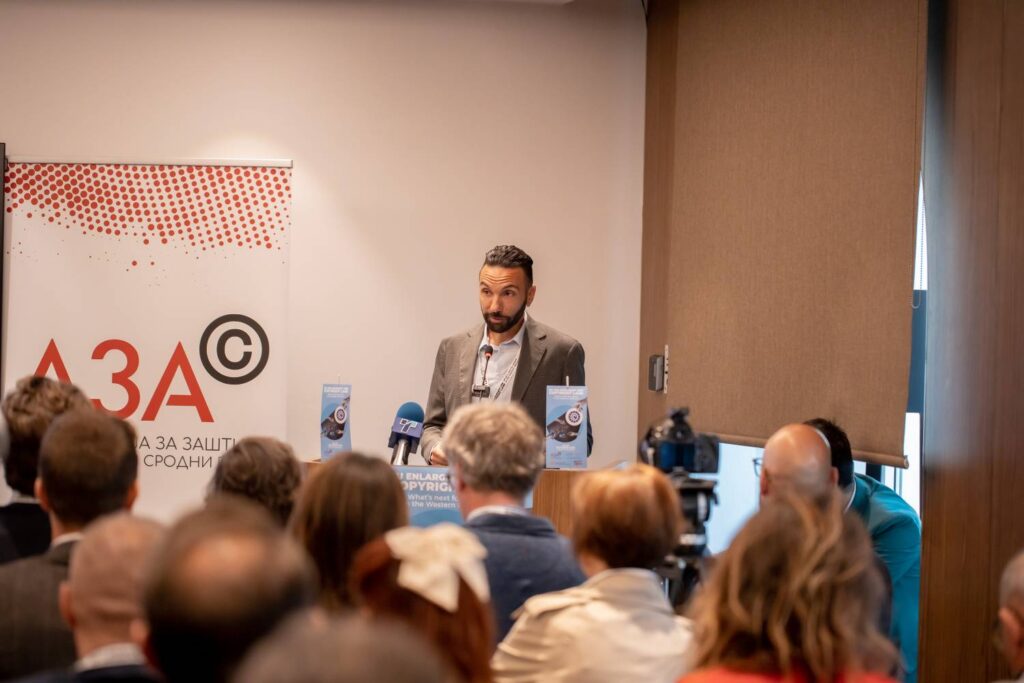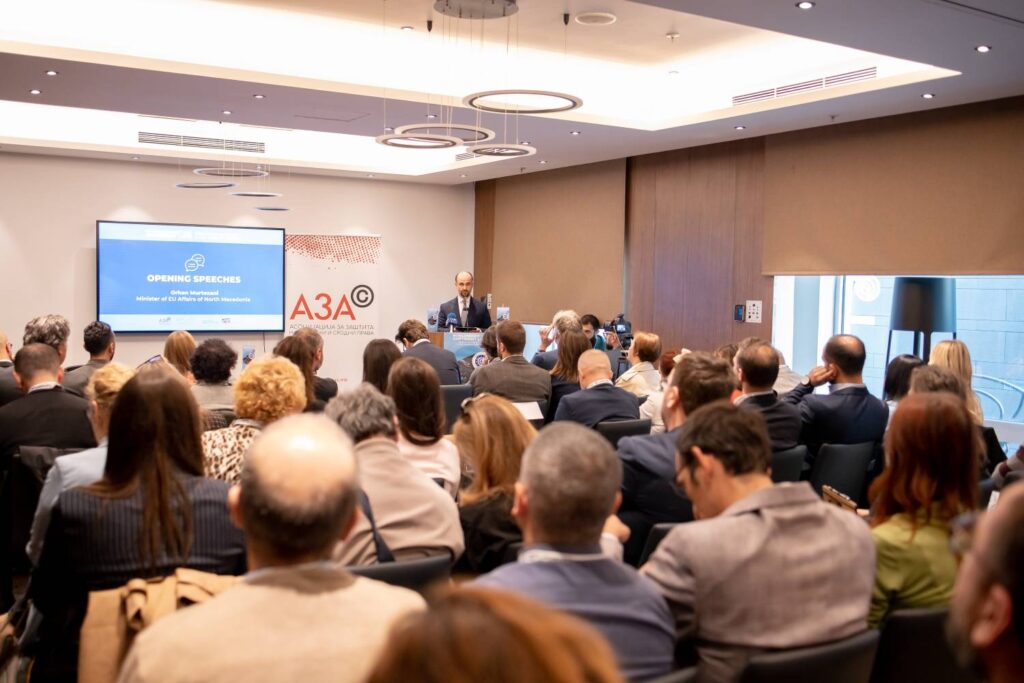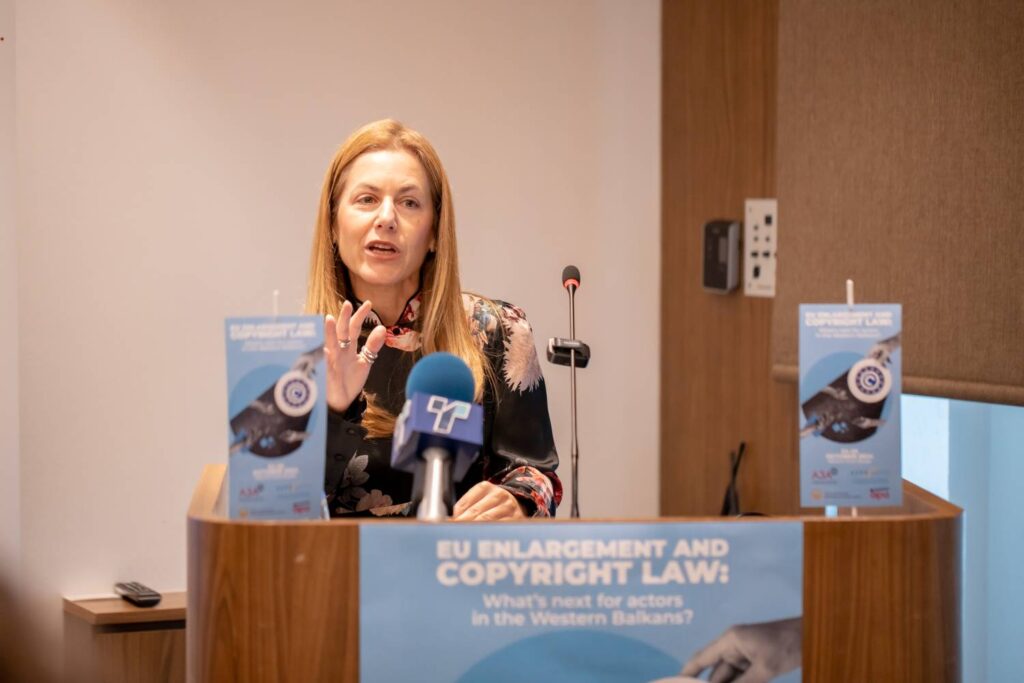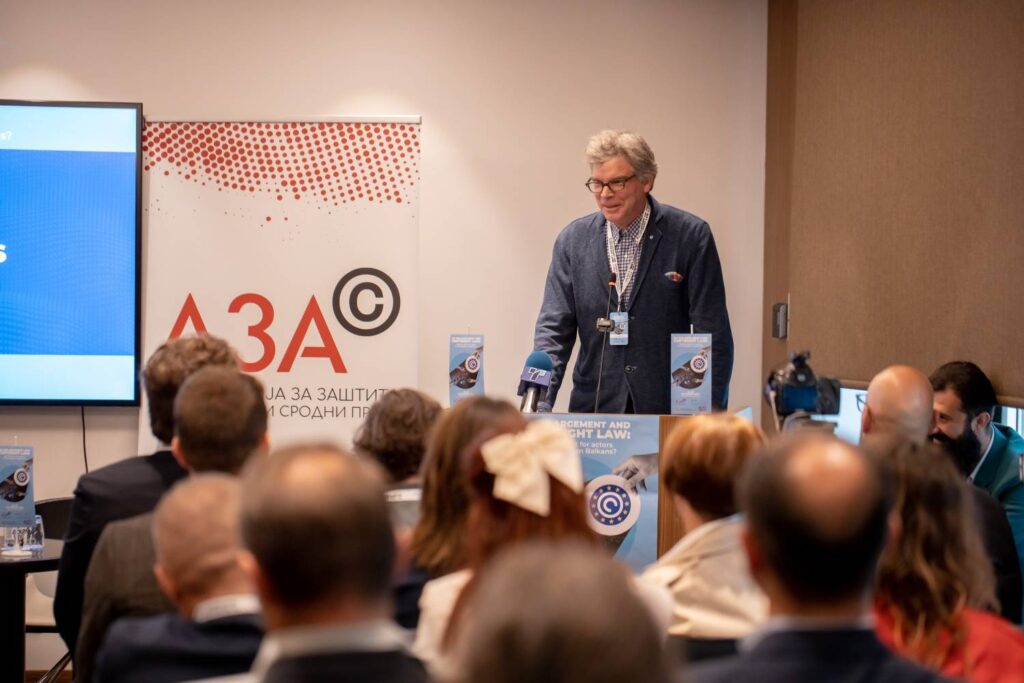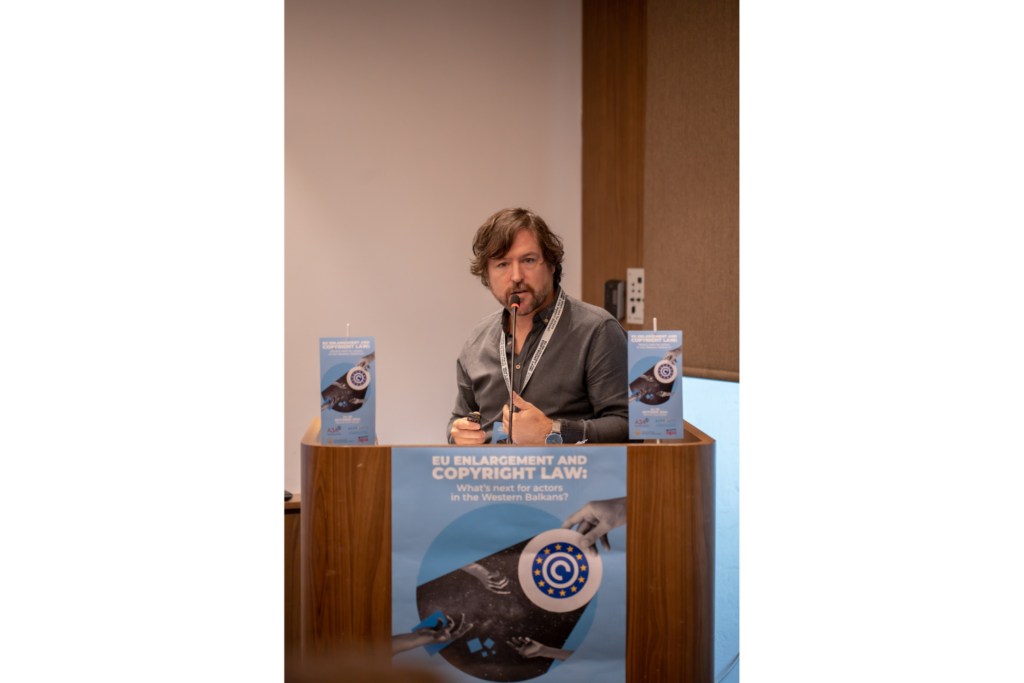Western Balkans Host First Regional Copyright Conference, Advancing EU Standards
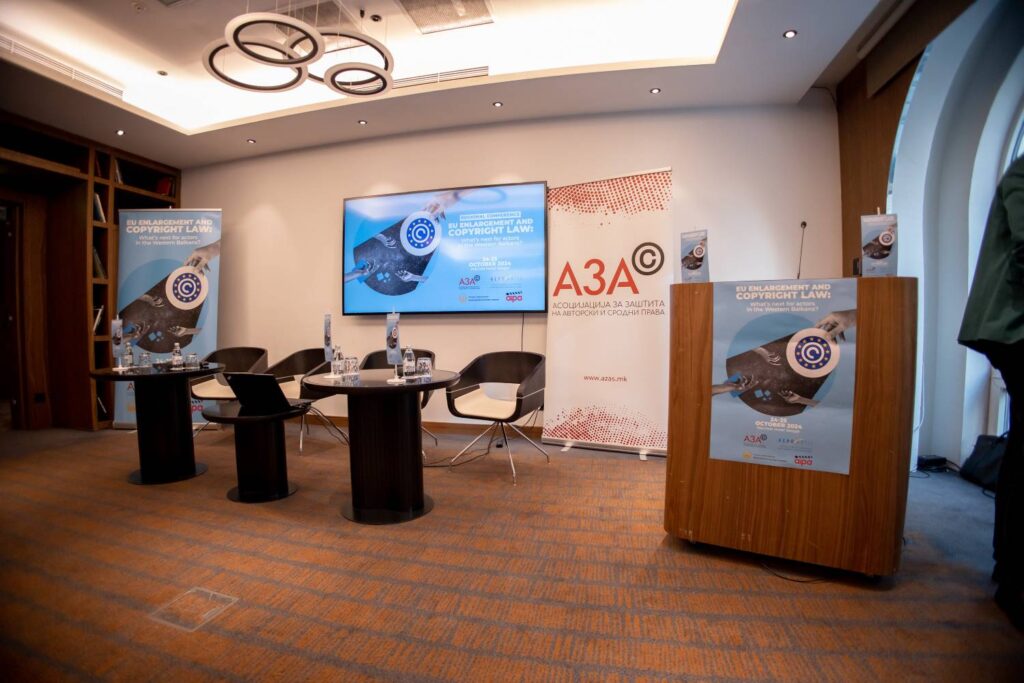
Today, Skopje and North Macedonia has become the epicenter for an essential dialogue on copyright, hosting the First Regional Conference on Copyright under the title: “EU Enlargement and Copyright Law: What’s Next for Actors in the Western Balkans?” This inaugural gathering draws influential voices across the creative industry, legal sectors, and policymaking realms, making it a watershed moment in the region’s alignment with European copyright standards.
In his welcome address, Kiril Gjozev – Secretary General of AZAS, expressed a deep sense of pride and optimism: “This conference signifies a pivotal step forward, an opportunity for the Western Balkans to unite in elevating copyright protections and ensuring creators get the recognition and compensation they rightfully deserve.”
This landmark event, coordinated by the Macedonian Association for the Protection of Copyright and Related Rights AZAS in collaboration with Brussels-based AEPO-ARTIS and the Slovenian Collective Management Organization AIPA, has also garnered vital support from the Ministry of Culture and Tourism. It is an accomplishment made possible by the region’s most forward-thinking minds and organizations, all dedicated to advancing copyright protections that foster a sustainable environment for creativity.
Over the course of two days, representatives from all six Western Balkan countries are joined by special guests from Turkiye, Portugal, Germany, Belgium, Croatia, and Slovenia. Together, they will tackle pressing issues facing creators and intellectual property stakeholders as these countries progress in their EU integration journeys. Key discussions will span the role of Collective Management Organizations (CMOs) in copyright protection, EU-backed policies for regional support, and the ongoing challenge of securing creators’ rights in the face of economic and legal hurdles.
Gjozev also highlighted the unique challenges faced in North Macedonia. “Our country has shown great promise in collective rights management, gaining international attention, yet our path has been hindered by obstacles. But today, with the Ministry’s support, we have renewed energy to bring our laws and enforcement practices in line with our dedication to our creators. This gathering isn’t just a conference, it’s a statement of regional solidarity.”
Notably, the conference will provide a platform for deep knowledge exchange on best practices that have been effectively employed in countries like Slovenia. As Gjozev emphasized, “Each of these strategies, when adopted and adapted, ensures that creators across all mediums eighter in film, music, or digital media – see fair returns for their invaluable work.” The gathering is also a testament to the region’s commitment to collaboration, with panel discussions and presentations spotlighting success stories and the hurdles that remain.
This first-of-its-kind conference represents not only a positive step toward EU compliance but also a testament to the Western Balkans’ dedication to fortifying copyright protections that honor the creative spirit.
At the opening of the Conference, the Minister of EU Affairs Orhan Murtezani says the protection of the rights of the creators is necessary, but, he said, enforcement requires a collective effort.
– Being part of the EU Cultural Art Network is not only the beginning, but it is an opportunity to confirm our commitment to our artists, to our performers and to the future of our creative universe. We must serve to protect the copyright of the people who best create our screens, our scenes, and our songs. But it requires action, it requires enforcement and it requires a collective effort to ensure that there is no action and no performance is left behind, Murtezani noted.
Macedonia is a country that does not have film production as much as Western countries, actor Gorast Cvetkovski pointed out in his address, pointing out that performers do not receive anything from the content that is broadcast on streaming platforms.
– This should have been done a long time ago and it is already late, but we are fighting and striving to make this a reality. Macedonia is a country that does not have as much film production, visual production, as Western countries, which is also a problem. Many times we have seen reruns of content that has already been done over the years, that has been played on the air many times, and now with the new media and streaming platforms we see that all our work is there, we do the work for the platforms, for the stations, for the media and we get nothing out of it. In these uncertain times for artists, this is extremely important so that we can maintain creativity, maintain sustainability, maintain our jobs, our profession, our love and passion. I think we still have a long way to go. This is one of the biggest steps we’re taking to introduce people to what’s happening in other places. It is very easy when we have certain examples to show the government that it can be done or that it has already been done and we can implement it and even copy it right here in Macedonia, said Cvetkovski.
The conference will continue to deliver two days of in-depth presentations, valuable exchanges, and mutual commitments to a more secure future for creative professionals across the region.
